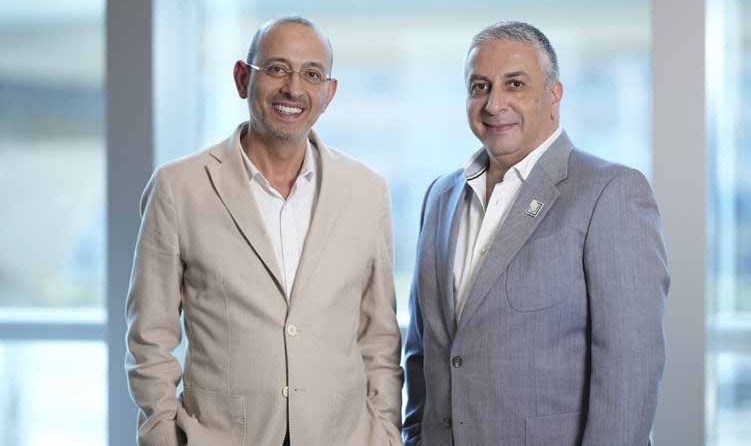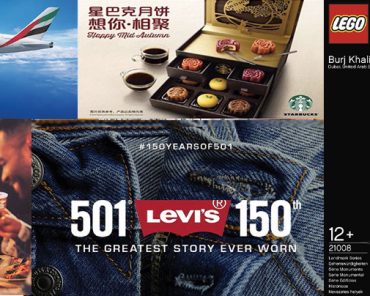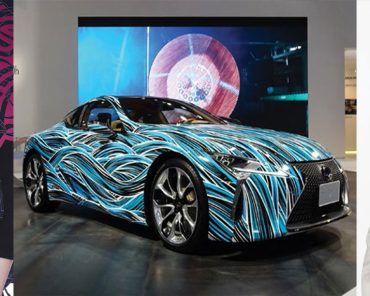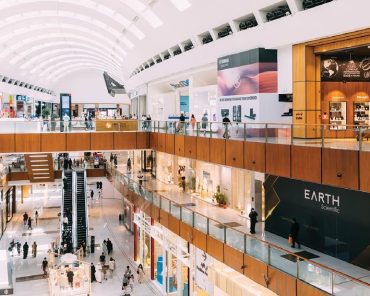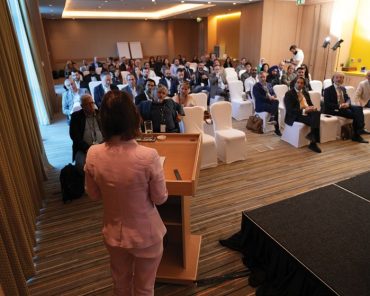Dynamic Duo: Amer Bitar and Ammar Jabri
Leading Top Licensing Agency in MENA Region
By Adeeb Alghoufary
Dynamic Duo: Amer Bitar and Ammar Jabri Lead Top Licensing Agency in MENA Region
@Amer Bitar and @Ammar Jabri bring a wealth of experience and wide network of contacts to their work as a preeminent licensing agency. The company specializes in representing brands and other agencies in the Middle East and North Africa.
Expanding a brand into a new territory can be tough at the best of times, but much more difficult when you’re in a region where you don’t speak the language, or are not familiar with the culture. That’s why many brands and licensing agencies partner with local agencies who literally grew up in the region, and know it inside out. In the Middle East, perhaps the top agency is Markettcom, which is currently representing 20 brands in the MENA (Middle East-North Africa) region. Markettcom was co-founded by Amer Bitar, who played a major part in guiding the expansion of Spacetoon as the managing director of Spaceman International, as well as the WWE wrestling brand as head of licensing, retail and monetization. While at WWE Bitar played a major role in a 10-year, billion dollar deal to expand the WWE in Saudi Arabia, a collaboration that continues to this day. When the COVID-19 pandemic hit, however, all in-person events were shut down, and Bitar was among the many people laid off from WWE. “So, that’s when I decided to go out on my own, and I created Markettcom with my partner, Ammar Jabri, as a special type of boutique licensing agency, supporting brands and agencies who don’t have offices in the region.” Jabri brings a strong background in business and marketing to the agency, having owned or held top positions at a number of trading companies in the Middle East.

Today, Markettcom operates primarily from its offices in Toronto and Dubai, helping guide the expansion of brands through MENA. “Bringing brands into a new territory where there are different languages and cultures involved requires a pretty special set of skills,” Bitar says. “When I was at Spacetoon, for example, one of the things we did differently was that we always did our best to localize the content and make it more accessible to the audience. “Similarly, the job of licensing wasn’t just about giving our advice on licensing deals or translating the language; it was more about working on some of the cultural issues, because at that time the Middle East in general was much more conservative, and they were very strict in allowing certain content to be broadcast.” Bitar recalls one case that is a good cautionary tale for anyone entering a market in which some images or symbols can be interpreted in very different ways than they were originally intended. The Spacetoon toy subsidiary New Boy was introducing Pokemon toys to the region, but ran into trouble when some of the characters and images were found to resemble local illustrations or symbols. “They have a lot of symbols for the devil, and in this case a religious cleric in Saudi Arabia thought some of the Pokemon characters essentially looked like the devil, and so they banned the toys, and that move was followed by all the countries in the GCC (Gulf Cooperation Council),” Bitar says. “That was a huge loss for New Boy, and a really big loss as well for a variety of different toy companies.” Bitar’s early work was in the early days of licensing in the Middle East and North Africa, so he lived and worked through the toughest period for the industry in that region. Today, he says there are still challenges and obstacles, as there would be anywhere, but the good news is that the regulations are welcoming of Western brands, and the licensing sector is growing incredibly quickly. “It is true that the Middle East and Africa still represent a relatively small percentage of the overall market,” Bitar says. “I think it’s not much more than five per cent of global revenues, but it is growing very quickly, particularly when you look at all of these new investments from Saudi Arabia after 2017. “The New Vision 2030 program is for Saudi Arabia to be a global hub of entertainment, so the government is heavily investing in different properties, especially entertainment and character brands, and they also have a major investment in location-based entertainment.” Part of that effort is the construction of an entire city dedicated to play, where, just for example the LBE company Falcon’s Beyond has been commissioned to guide the construction of a 500,000 square metre theme park based on the Dragon Ball franchise. In another recent example, The Path Entertainment Group has partnered with Al Hokair Group to bring Monopoly Lifesized to Saudi Arabia. “Right now there are three countries where
we are seeing the most growth, and in fact, they are competing with each other on Location Based Entertainment,” Bitar says. “Besides Saudi Arabia you have Qatar and the UAE, who are competing to get brands to bring their licenses and their IP to create these big theme parks.” Bitar advises brands in the licensing space to take a good look at the MENA region, particularly in the GCC area, Egypt and Turkey, all of which have large populations, a young demographic, and a lot of people with disposable income. “The Middle East is growing faster compared to other markets, especially for brands that focus on a younger population, because one of the youngest average populations is in the Middle East, and especially in the GCC, this region has very high purchasing power, so you’re seeing a lot of the top brands opening in the region covered by the six countries of the GCC,” Bitar explains. “Also, while Egypt has some challenges, it is a nation of more than 100 million people, and you have countries like Turkey, which is an absolutely huge market. “So, it’s that combination of high population growth, a younger demographic, and high purchasing power that is the key to why brands should be expanding into the Middle East.” Another factor is that governments have definitely changed their tune when it comes to welcoming tourism and Western brands. Bitar says the trend started when governments realized that their citizens were travelling abroad to seek out entertainment options that weren’t available back home. “There is a lot more money in the region, in terms of personal wealth, and these countries were finding a lot of their people were travelling to Turkey or Europe for the entertainment they can provide, and that’s a huge amount of money that’s going out of the kingdom,” he said. “So this is why they decided to create more entertainment and attractions, both to keep local tourists in the country, but also to bring in tourists from abroad, and so they are following the model that really started in Dubai, attracting more tourists and more expats who bring money into the country.” In addition to Location Based Entertainment and entertainment/ character licensing, Bitar says the other major growth areas are in sports and art & design licensing. Markettcom already represents major museums like The Met and The National Gallery, as well as being a local partner for the art-focused agency Artistry. In addition, Bitar says the sports sector is exploding, starting in 2017 when his team at WWE inked their long-term deal. “You are seeing a huge increase in the growth of sports licensing, especially after Qatar for the FIFA World Cup last year,” Bitar notes. “Now Saudi Arabia is also going to host the World Cup, so there will be even more growth for sports licensing in the region for years to come.” He also points to other major sports finding a home in the Middle East, including LIV Golf, which was funded by Saudi Arabia’s Public Investment Fund, and the Dakar rally race, which relocated in the Middle East after years of running through South America. However, while Bitar is bullish on the growth of licensing in the MENA region, he also warns that expansion into new regions inevitably come with pitfalls. Errors in language, or unknowingly adopting symbols that could be offensive to local people, can quickly derail a licensing program. As well, simply being unaware of the local players make it much more difficult to find the right partners. “My best advice for anyone who isn’t able to build up their own local licensing department is to work with a reputable local agency,” Bitar says. “You need to understand the market, and you need to have a network, because most of the deals can be closed based on personal relationships. “People like to build that relationship based on connections, common values and a reference from other people that they know and trust, so it’s totally different than building or growing business in Europe or from North America, and this is why you need someone from the region that has a good network. “I think most of the companies, they need either to hire local people, or they need to work with local agencies, and I think the model of local agencies is much easier and less expensive for most of the brands to use that model.”
Facebook
Twitter
LinkedIn
Source: TheLicensingLetter.com
By Gary Symons TLL Editor in Chief
CONTACT
Sheikh Zayed Rd, Rawdat Al Wasl Building, Office 310. Dubai, UAE


